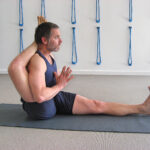Empowering Mums
Pregnancy is a miraculous journey, but it can also feel overwhelming as your body undergoes significant changes. Understanding these changes can help you embrace this unique chapter and care for yourself and your baby.
One of the biggest changes with pregnancy is the surge in hormone production. Hormones like human chorionic gonadotropin (hCG) are essential for maintaining pregnancy, while progesterone and estrogen levels increase significantly. These hormones play vital roles in supporting your baby’s development and facilitating physiological changes that occur during pregnancy. Some physiological changes you can expect include changes in blood flow and metabolism. Another new hormone released during pregnancy is relaxin, this hormone promotes laxity in joints to prepare for childbirth.
On top of hormonal changes, your body experiences increased stress on the pelvic floor. This area supports your growing uterus and baby, which can lead to discomfort or changes in function.
While pregnancy can leave you feeling disoriented in your own skin, it's a time of incredible transformation and strength. By understanding the hormonal changes, pelvic floor stress, and physiological adaptations your body undergoes, you can embrace this journey with greater confidence and care for both yourself and your baby[1] .
This blog covers all of the common changes and challenges you may face during pregnancy. Whether it's your first child, or you've got a few little ones running around already, this post is for you. We discuss how women’s health physios play an integral role in supporting you as experience these changes throughout the journey of pregnancy, and best prepare you for when bub arrives.
Urinary Incontinence
This is the involuntary leakage of urine. It can be caused by various factors, including pelvic floor weakness, hormonal changes, or urinary tract infections. It is more common during pregnancy, childbirth, and menopause.
Physiotherapists can teach pelvic floor exercises (such as Kegels) to strengthen the pelvic muscles, improve bladder control, and reduce leakage. They may also provide education on bladder training techniques and lifestyle modifications.
Constipation
Constipation refers to infrequent bowel movements or difficulty passing stools. It can be caused by dietary factors, dehydration, lack of physical activity, or hormonal changes, and it’s often a common issue during pregnancy.
Physiotherapists can offer guidance on abdominal exercises, posture, and techniques to promote healthy bowel movements. They may also suggest dietary changes and pelvic floor muscle training to aid in proper bowel function.
Pelvic Girdle Pain
This condition involves pain in the pelvic area, often due to changes in posture, weight distribution, and hormonal shifts during pregnancy. Most commonly, it can manifest as sacroiliac joint pain (pain in the lower back and hips) or pubic symphysis pain (pain in the front of the pelvis).
Physiotherapy can include manual therapy, and exercises to strengthen the pelvic floor and core muscles. You will also be provided education on body mechanics and posture which can help alleviate stress on the pelvic girdle. As well as, provide you with advice on how to manage your pain.
Lumbopelvic Pain
Lumbopelvic pain is discomfort in the lower back and pelvic area, which can arise from changes in body mechanics during pregnancy, such as fetal positioning and weight distribution.
Physiotherapists can assess movement patterns and provide tailored exercise programs to improve strength, flexibility, and stability in the lower back and pelvis. Techniques like manual therapy can also be used to relieve pain.
Neuralgias
Neuralgias are nerve-related symptoms that can cause pain, tingling, or numbness in various areas.
Carpal Tunnel Syndrome: A condition that occurs when the median nerve is compressed at the wrist, leading to pain and numbness in the hand.
Tarsal Tunnel Syndrome: Similar to carpal tunnel but occurs at the ankle, involving compression of the tibial nerve.
Meralgia Paresthetica: This condition involves numbness or tingling in the outer thigh due to compression of the lateral femoral cutaneous nerve.
For the above conditions, physiotherapy can involve nerve gliding exercises, manual therapy, and ergonomic assessments to reduce nerve compression. Education on your condition, pain management techniques and home exercise programs may also be provided.
Varicosities
Varicosities are caused by a venous insufficiency which is when veins struggle to send blood back to the heart, leading to pooling in the lower limbs and symptoms like swelling and discomfort. Varicose veins are swollen, twisted veins, often in the legs, caused by this venous insufficiency. Vulvar varicosities are varicose veins in the vulvar area, commonly occurring during pregnancy
Physiotherapists can recommend exercises to improve circulation, educate on proper body mechanics, and suggest compression garments to relieve symptoms. They can also guide lifestyle modifications to reduce the risk of developing varicose veins.
Abdominal Separation
Diastasis Recti Abdominis Muscle (DRAM) is a condition where the rectus abdominis muscles separate along the midline, often occurring during and after pregnancy due to increased abdominal pressure.
Physiotherapists can assess the severity of diastasis recti and create a personalized rehabilitation plan focusing on restoring core stability and strength. They can also teach safe techniques for abdominal exercises that minimize further separation.
Exercise
It's important you keep moving when you are pregnant! Exercise during pregnancy has shown to help prevent and manage conditions such as gestational diabetes, gestational hypertension, pre-eclampsia, alleviate symptoms of depression and anxiety, as well as support a positive mood and body image.
It's important that the level of exercise you do is appropriate for you body during pregnancy. Ideally, exercise that you are already accustomed to, and nothing too strenuous (with high impact). A women’s health physio can help guide you here, and assist you with a safe and effective exercise program.
Birth Education
You will also be provided with information on common concerns with labor and delivery. You will learn the importance of the pelvic floor and be educated on positional options and breathing techniques for pain management during the birthing process. Your physio will also discuss postpartum recovery by providing you with advice on handling positions for comfort and how to safely resume exercise after childbirth.
Overall women’s health physiotherapists provide essential education on body mechanics, posture, and self-care strategies. They create treatment plans tailored to each individual’s specific needs and goals. By working with a women’s health physiotherapist, you can gain valuable insights, skills, and support that enhance your pregnancy experience, promote your health, and prepare you for the challenges of motherhood.[2]
Post-partum
Once Bub has entered the world, your body will be recovering from the changes you have experienced from pregnancy and birth. Early postpartum care includes addressing any changes in bladder/bowel function, healing any perineal trauma and addressing any abdominal concerns. You will also be given advice on general pain management after birth such as the use of cold therapy and wound support.
A postnatal assessment with your physiotherapist at 6-8 weeks postpartum is common practice to monitor any concerns with your pelvic floor, abdominal separation (DRAM), and/or bladder/bowel concerns. You will also be provided with exercises to regain mobility and build up strength. At this time, we can also help support you by making a plan for returning to your physical activity goals. It is especially important to consult with your physio prior to returning to any high intensity physical activity, such as running or heavy weight lifting. Your physio will ensure that you have regained a sufficient amount of strength in your pelvic floor and core muscles to prevent injury.
Postpartum physiotherapy is a valuable resource for new mums navigating the physical and emotional challenges of recovery. By focusing on pelvic health, core stability, pain management, and education, physiotherapists provide comprehensive support tailored to your individual needs. Embracing this care can help you regain confidence in your body and enjoy the journey with greater ease.
Conclusion
Women’s health physiotherapy plays an important role in supporting a healthy pregnancy and recovery journey. By offering personalised exercise plans, education on physical changes and techniques for pain management, physiotherapists equip women with the tools they need to feel strong and supported during this life changing experience.





